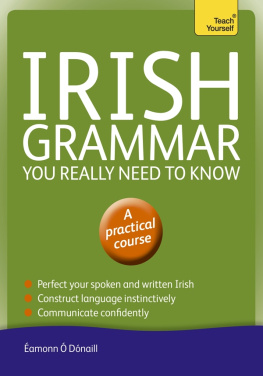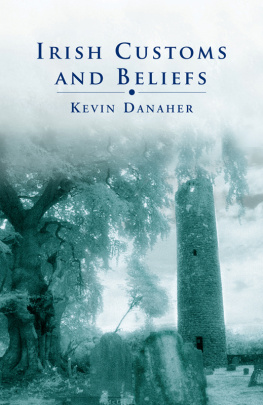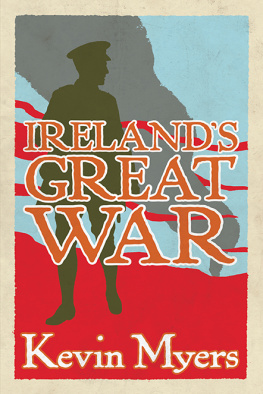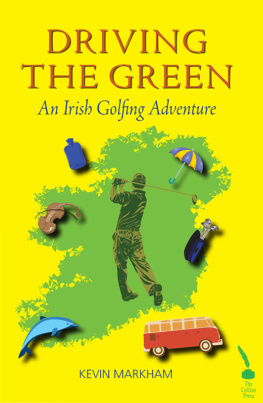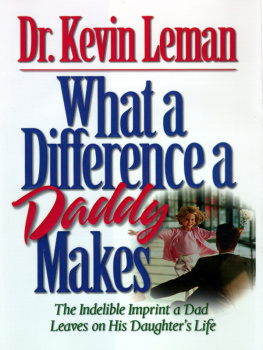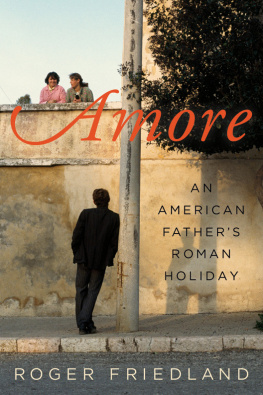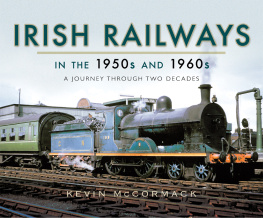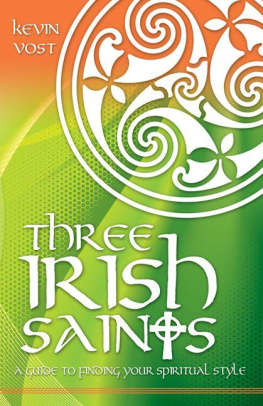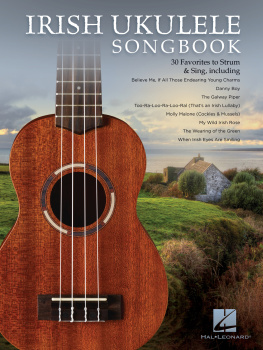Kevin Toolis - My Fathers Wake: How the Irish Teach Us to Live, Love, and Die
Here you can read online Kevin Toolis - My Fathers Wake: How the Irish Teach Us to Live, Love, and Die full text of the book (entire story) in english for free. Download pdf and epub, get meaning, cover and reviews about this ebook. year: 2018, publisher: Da Capo Press, genre: Detective and thriller. Description of the work, (preface) as well as reviews are available. Best literature library LitArk.com created for fans of good reading and offers a wide selection of genres:
Romance novel
Science fiction
Adventure
Detective
Science
History
Home and family
Prose
Art
Politics
Computer
Non-fiction
Religion
Business
Children
Humor
Choose a favorite category and find really read worthwhile books. Enjoy immersion in the world of imagination, feel the emotions of the characters or learn something new for yourself, make an fascinating discovery.

- Book:My Fathers Wake: How the Irish Teach Us to Live, Love, and Die
- Author:
- Publisher:Da Capo Press
- Genre:
- Year:2018
- Rating:3 / 5
- Favourites:Add to favourites
- Your mark:
- 60
- 1
- 2
- 3
- 4
- 5
My Fathers Wake: How the Irish Teach Us to Live, Love, and Die: summary, description and annotation
We offer to read an annotation, description, summary or preface (depends on what the author of the book "My Fathers Wake: How the Irish Teach Us to Live, Love, and Die" wrote himself). If you haven't found the necessary information about the book — write in the comments, we will try to find it.
My Fathers Wake: How the Irish Teach Us to Live, Love, and Die — read online for free the complete book (whole text) full work
Below is the text of the book, divided by pages. System saving the place of the last page read, allows you to conveniently read the book "My Fathers Wake: How the Irish Teach Us to Live, Love, and Die" online for free, without having to search again every time where you left off. Put a bookmark, and you can go to the page where you finished reading at any time.
Font size:
Interval:
Bookmark:
Copyright 2017 by Kevin Toolis
Hachette Book Group supports the right to free expression and the value of copyright. The purpose of copyright is to encourage writers and artists to produce the creative works that enrich our culture.
The scanning, uploading, and distribution of this book without permission is a theft of the authors intellectual property. If you would like permission to use material from the book (other than for review purposes), please contact permissions@hbgusa.com. Thank you for your support of the authors rights.
Da Capo Press
Hachette Book Group
1290 Avenue of the Americas, New York, NY 10104
www.dacapopress.com
@DaCapoPress; @DaCapoPR
Originally published in Great Britain in 2017 by Weidenfeld & Nicolson, an imprint of The Orion Publishing Group, Ltd., a Hachette UK Company
First U.S. Edition: September 2017
Published by Da Capo Press, an imprint of Perseus Books, LLC, a subsidiary of Hachette Book Group, Inc. The Da Capo name and logo is a trademark of the Hachette Book Group.
The publisher is not responsible for websites (or their content) that are not owned by the publisher.
Typeset by Input Data Services, Ltd., Somerset, Great Britain
Library of Congress Cataloging-in-Publication Data has been applied for.
ISBNs: 978-0-306-92146-9 (hardcover); 978-0-306-92145-2 (ebook)
LCCN: 2017948124
E3-20180106-JV-NF
For Sonny, and other keepers of an ancient faith, and Dea, who never stopped believing.
The generations of men are like generations of leaves. The wind scatters one years leaves down on to the earth, but when spring comes the luxuriant forest produces other leaves; so it is with the generations of men, one grows as the other comes to end.
Iliad, 6145
In the narrow room the old man lay close to death.
Two days before he had ceased to speak, lapsed into unconsciousness, and the final vigil had begun. The ravages of cancer had eaten into the muscle, leaving a starved skeletal husk. In the bed the body lay awkwardly propped; the skull and limbs crucified at jarring angles. The open eyes were cloudy, their tissues dried; the seized mouth a scabby parched red hole. The heart beat on and the lungs drew breath but it was impossible to tell if he remained aware. Above the mans head, to the right on the whitewashed wall, a cheap print of a ruddy-faced Jesus Christ, his heart exposed and arms outstretched, offered eternal salvation to his followers.
Just after dawn on the longest day, the breathing grew hectic. The skeletal ribcage heaved with irregular breath, the wheezing lungs gasping for oxygen, failing into silence and then, against expectation, rising again. The death rattle had commenced. The bean chaointe pronounced; the moment of death was close. A nine-year-old boy was hurriedly despatched to gather in the last of the mans sons. Boy and son returned to find ten watchers crammed shoulder tight within the spartan room, all staring at the tangle of limbs. A rasping breathing filled the air.
Huh, huh, huh.
In the silence of the watchers huh, huh, huh that panicked drowning sound huh, huh, huh, huh, huh, huh, HUH, HUH, HUH rose to a crescendo then plummeted, free-falling, into an agonising void.
And then began again.
Huh, huh, huh
This death was not veiled but a rite within an Irish clan.
I stared around the room at these watchers: at my nine-year-old nephew San who had come for me; at my heavily pregnant cousin Bernadette; at the seer, my matronly Aunt Tilda who now led us in the wake, the woman of wounds, our midwife of death; at Nora, the elderly neighbour who sold eggs; and at other witnesses to whom I had never spoken. I wondered what they sought to gain from the moment of death of this man. Of Sonny. My father.
The seer broke out in prayer and began to recite the Five Sorrowful Mysteries of the Rosary.
Hail Mary, full of grace, the Lord is with thee, blessed art thou amongst women, and blessed is the fruit of thy womb, Jesus.
As one, the watchers returned her chant. The tight single-bedded room, no bigger than a prison cell, filled up; the song of voices overwhelming the stuttering rhythm of Sonnys lungs.
Holy Mary, Mother of God, pray for us sinners now and at the hour of our death.
The sound boomed off the ceiling, off the white-washed walls, the concrete floor, the glass cover of Jesus Our Saviour, reverberating, louder and louder, filling every orifice.
Hail Mary, full of grace, the Lord is with thee, blessed art thou, amongst women and blessed is the fruit of thy womb Jesus. Holy Mary, Mother of God, pray for us sinners now and at the hour of our death.
Verse, after verse, prayer after prayer. Keening.
For years as a child, in one gloomy Catholic church after another, I recited that prayer, running the words together like a hollowed verbal conjuring trick until I could say HolyMaryMotherofGodprayforus sinners now andatthehour ofourdeath in four seconds flat.
Words breathed but emptied of meaning.
Now, I was home on the island off the coast of Irelands poorest county, Mayo, in the furthest western reaches of Europe, for the hour of this death.
Home on an island of elemental fury, a rock citadel in the great ocean, where huge Atlantic storms break onshore, scouring the landscape and destroying everything not anchored down. The wind howling, wailing, car-door-wrenching. At night as you lie in bed awake, the storm surging in assault, striking at the rattling roof, the shaking windows, to suck you out, every living soul within, up into the maelstrom. The great ocean, a hundred yards away, was alive and malevolent, the surf a cascading white fury. The waves lashing every headland, surging, turning, daring you just close enough to capture you for the depths. My godfather, a shepherd, and two of his companions were swept to their deaths rescuing sheep on what had started as a clear winters day.
And with the wind comes the rain. Bucketing, drenching rain, for months on end. Swallowing the ocean, the earth, the hills, the horizon, in a bleary, grey stinging assault. Pouring, pouring, from the sky in deluge. Black mile-high sheets of falling water sweeping in from the western horizon, bursting on the sodden earth before roaring back down heather hillsides into the ocean. The sky too another vast ocean; often grey or darkening black with rain-laden clouds, but sometimes pink, scarlet red or blue. Or shimmering with light as sun-lanced pillars of gold burst through an overcast sky onto grey waters. Or the air filling up with mist showers and the whole world, sea, sky, earth, glimmering back in a mirror of silver light.
And then there are days when the sun blazes as a God chariot rising from behind Minaun mountain over the ocean in a great arc before descending in a blood red orb into the ocean behind Croaghaun mountain. Yellow lilacs rocket skywards from the bog, and meadows sway with golden buttercups and white daisies. The sea turns green glass, the wind stills, and dolphins leap in the surf so close to shore you could easily swim out to them. Like a smoky perfume, the smell of peat turf lazily drifts over the village and the blue-eyed sheepdogs of Dookinella deliciously spread themselves on the tar and gravel road to cool their molten bodies.
As Sonny lay dying we had another kind of weather: humid, hazy days, the entire village consumed in sea mist. We were unable to see further than the garden gate: all land, sea and sky shrouded in a still blanket that made night and day one. We were becalmed. Waiting for his heart to stop, the wake, his funeral, the church, the grave. Waiting for the death of this very ordinary man. Waiting, I thought, to start again. Resume Life. As it turned out, nothing else I have ever done or will do was more important than those precious days.
Font size:
Interval:
Bookmark:
Similar books «My Fathers Wake: How the Irish Teach Us to Live, Love, and Die»
Look at similar books to My Fathers Wake: How the Irish Teach Us to Live, Love, and Die. We have selected literature similar in name and meaning in the hope of providing readers with more options to find new, interesting, not yet read works.
Discussion, reviews of the book My Fathers Wake: How the Irish Teach Us to Live, Love, and Die and just readers' own opinions. Leave your comments, write what you think about the work, its meaning or the main characters. Specify what exactly you liked and what you didn't like, and why you think so.

